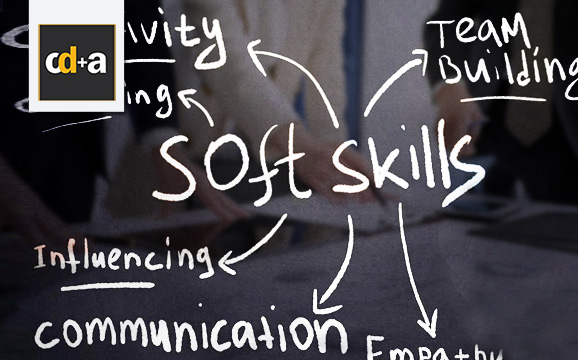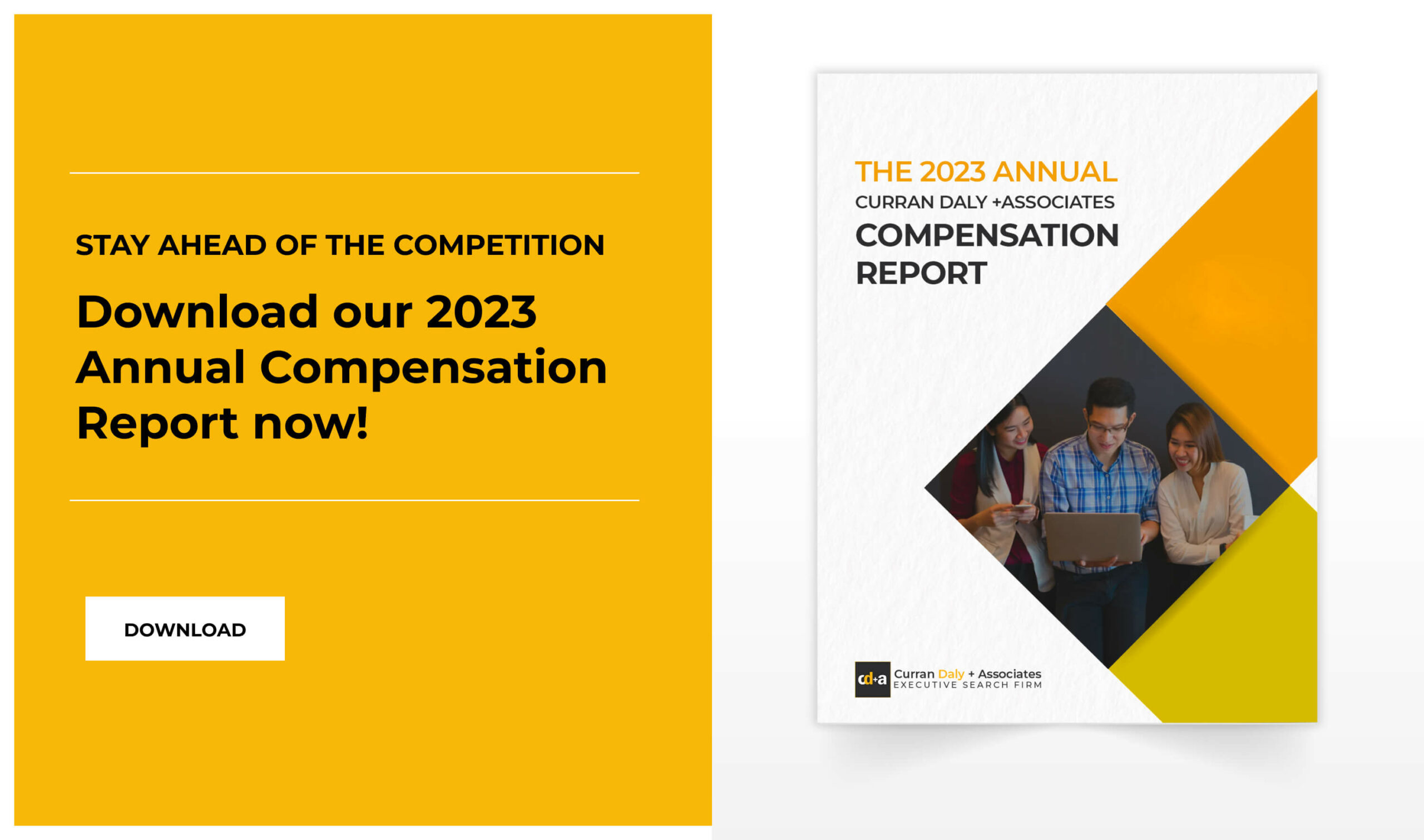In early 2021, a great exodus of employees from their workplaces began. Dubbed by some experts as “The Great Resignation,” this trend has left many companies understaffed and scrambling to fill the positions vacated by these workers.
Amid this massive change in employment, employers must be especially mindful of their employees’ satisfaction with leadership. To successfully overcome the consequences of The Great Resignation and hold onto your workforce, companies should ensure that the management team has all the necessary soft skills to keep them from fleeing.
Executives must possess more than just impressive résumés and results; soft skills are the essential missing piece. It is not enough to rely solely on past accomplishments when evaluating a potential hire – instead, it is critical to assess their interpersonal abilities as well.
Even if an executive boasts impressive past achievements, it is important to remember that those accomplishments could have been a direct result of their unique set of circumstances.
In addition, artificial intelligence is becoming increasingly proficient, which means that soft skills – those abilities not yet replicable by machines – are more crucial than ever. Deloitte’s 2017 study revealed that two-thirds of all jobs will require these capabilities by 2030, and hiring personnel with strong soft skill sets can result in a revenue surge of over $90,000 annually.
Why soft skills are important during this intensely competitive labor market
Soft skills have become a much sought-after commodity in the business world.
In the past, organizations held hard skills in greater esteem than soft ones; however, this notion has been drastically altered over time.
Companies are now emphasizing the development of employees’ social and emotional skills to meet growing demands better.
According to a recent McKinsey survey, the number of companies emphasizing empathy and interpersonal skills doubled in 2020.
The importance of skills like leadership and management saw a ten percentage point jump from 40% in 2019 to 50% in 2020, making these capabilities more sought-after by companies.
As the workplace rapidly evolves, we must understand the importance of soft skills. In 2023 and beyond, they will be indispensable in any professional environment. Here’s why:
REASON 1: Soft skills ensure long-term success.
Having executives with technical expertise can only take your business so far in the current competitive market. To reach the pinnacle of success, however, it is important to have executives who have honed their skills that are more intangible yet just as crucial for achieving greatness.
While executives with technical skills are the basis for most hiring decisions, having executives with soft skills gives your company employees with “career durability” and an improved chance of success.
Alexandra Levit, the author of Humanity Works: Merging Technologies and People for the Future Workforce, has expressed what is necessary to become an effective and productive leader of any workforce – this being “the ability to acquire skills, knowledge, and mindset”.
To triumph in the long term, one must possess resilience and the capacity to adapt quickly to new learning environments.
By hiring an executive with exceptional soft skills, your company will benefit from their stability and commitment – resulting in lower rates of employee turnover.
REASON 2: Soft skills are highly transferable.
Technical skills of executives are always evolving, but soft skills stay with them throughout their professional journey.
This is because soft skills are applicable in various settings and make one more desirable to work with.
When a company employs an executive with exceptional soft skills, it can dedicate more time to other tasks instead of investing resources in training them.
Soft skills are highly valued due to their transferability, making it easier for companies to assign executives to various tasks.
REASON 3: Remote work demands soft skills.
As companies embrace both remote and hybrid work models, having executives with soft skills has become just as important as understanding technical concepts.
As we transition to an increasingly virtual world, the ability to effectively collaborate and communicate has become an essential skill for success.
What’s more, remote positions have gained immense popularity in recent years, consequently causing a sharp surge of competition among potential job candidates.
It is no longer enough to merely have technical skills; soft skills are an absolute necessity to consider if you want to land an executive who will thrive in today’s workplace.
Securing an executive with excellent soft skills in this competitive market gives your company an upper hand when it comes to working efficiently in a remote setup.
Soft Skills the Executives Must Have in 2023
SKILL 1: Leadership
What does it mean?
Executive leadership is the art of guiding organizations through setting objectives, developing strategies, and leading employees to achieve organizational goals successfully.
It is more about the ability to learn quickly and commit oneself to consistent growth than it is about personality type.
It takes a certain mindset and conducts to be an effective leader.
Executives must think beyond the present, take initiative, and develop creative solutions for long-term success.
Those in executive positions must be capable of analyzing a scenario, setting goals, and carrying out sound strategies.
Why do executives need it?
Executives need leadership because they are responsible for guiding their organization through difficult times, inspiring and motivating employees, setting a clear vision for the future, and ensuring the organization achieves its goals.
Leadership is important to ensure that an executive’s team has direction; it helps them focus on the tasks at hand and align everyone.
Executive leaders with great leadership can assess the situation from different perspectives to devise strategies that will ensure sustainability even in adverse conditions.
SKILL 2: Communication
What does it mean?
Communication skills are the foundation of successful leadership, as they provide leaders with the ability to effectively engage and interact with others.
More than just public speaking, communication is the cornerstone of leadership.
A leader proficient in communicating can not only set expectations but also collaborate with his peers and actively listen to their ideas and contributions for a more effective organization.
Why do executives need it?
Communication is an essential element for all executives to have.
Executives need to be able to articulate their vision for the organization, plainly set expectations for employees, and attentively listen to other perspectives.
These are all fundamental communication skills that a capable leader must possess to foster successful collaboration within their team or company.
When employees feel that their voices are respected by the executives, they become more committed to the organization and less likely to leave.
An effective leader understands the importance of communication and can actively listen to their employee’s needs, which in turn can increase employee satisfaction and retention.
SKILL 3: Problem-Solving
What does it mean?
Problem-solving is an essential skill for your leaders; it requires the capacity to identify a challenge, generate and evaluate numerous solutions, and then choose which choice will provide the most successful solution.
Executives must possess the capacity to view problems creatively while having the tenacity and foresight to see their solutions through.
Problem-solving calls for proactivity to recognize and address issues before they have detrimental effects on one’s organization.
Why do executives need it?
Executives are responsible for guiding their teams and organization to success, but problems can still arise along the way.
Moreover, when these issues arise executives should take the initiative and spearhead efforts to resolve them.
Executives need to have the ability to look beyond merely fixing issues; instead, strong executives can identify and address the underlying cause of a problem to come up with lasting solutions.
Knowing how and where problems begin is just as important as knowing how best to solve them for good.
SKILL 4: Decision-Making
What does it mean?
Making decisions is the art of selecting between multiple options, especially when one must do so in a fast-paced business environment.
Knowing how to make well-informed decisions quickly becomes essential for success.
Extremely capable decision-makers can assess a scenario, collect relevant evidence and data, and determine which process will provide them with the best possible outcome.
Crafting a successful decision involves assessing the risks and benefits associated with each option, as well as anticipating future ramifications.
Why do executives need it?
Executives who make clear, effective decisions help to boost morale and confidence among their team members.
In addition, careful and considered decision-making by an executive can increase both employee trust and loyalty.
When executives take the time to make decisions that are beneficial for everyone involved, employees feel valued and respected.
SKILL 5: Conflict Resolution
What does it mean?
An executive with expertise in conflict resolution can locate mutual understanding between contrasting viewpoints.
To be an expert in resolving disputes, an executive must have the ability to objectively evaluate conflicts and recognize the root of the problem.
The executive must then need to make certain that all parties understand what is at hand, listen attentively to their proposals for solutions, and use their knowledge to guide everyone towards a consensus they can each agree on.
A great executive recognizes the importance of having an experienced team to consult with business decisions and relies on their professional knowledge rather than personal feelings.
Grasping how a single action can have far-reaching implications within the company allows executives to make meaningful contributions in high-level decision-making processes.
Why do executives need it?
As a leader in the workplace, it is an executive’s responsibility to navigate employee conflicts equitably and beneficially.
They must also remain neutral throughout the resolution process for optimal efficacy.
An excellent executive must possess the skill to handle conflicts among their staff and themselves in a similar fashion, allowing for an encouraging work ambiance where employees feel respected, cherished, and encouraged to voice out worries they may have.
SKILL 6: Motivation
What does it mean?
Motivation as a soft skill is composed of two layers.
Firstly, motivation involves self-motivation, where you can take the initiative to complete tasks without being instructed or managed.
The other side of this equation involves your capability to motivate others with your enthusiasm and encouraging attitude.
Having emotional intelligence allows executives to identify and manage their feelings as well as those of others.
Executives custom-fit their techniques to suit different personalities and shape decisions through working collaboratively, gaining trustworthiness, and comprehending motivations.
Why do executives need it?
It’s quite evident why executives need to motivate themselves; after all, rarely will they have someone else standing over them.
Without self-motivation, it can be difficult for an executive to generate the enthusiasm required for achieving their goals and objectives efficiently.
Self-motivation is therefore critical in empowering not just the executive but also his team members towards success.
Executives who can effectively motivate their staff are essential assets to any organization, as they will reduce employee turnover and retain talented individuals.
SKILL 7: Resilience
What does it mean?
Resilience gives executives the emotional fortitude to confront and overcome difficulty.
Possessing the ability to quickly adapt and respond to unexpected events can be the difference between success and failure for any organization.
Executives are significant contributors to a company’s resilience, and their ability to respond rapidly and adjust to changing circumstances is invaluable.
Why do executives need it?
Workplace resilience has become a growing trend since the start of the pandemic.
In light of the economic and health consequences brought about by COVID, executive teams have had to rapidly devise solutions for safeguarding their organizations within a limited timeframe.
As such, resilient leadership has become an essential asset for success.
When faced with adversity, executives who lack resilience are quick to become overwhelmed and turn to unproductive methods of dealing.
On the other hand, those with a high degree of resilience draw on their inner resources along with support from co-workers to tackle difficult situations head-on and find effective solutions.
SKILL 8: Creativity
What does it mean?
Excellent executives naturally tend to embrace creativity, as they often think outside the box.
They might have to come up with new strategies for their team or organization, develop original concepts, brainstorm ideas, and challenge existing processes.
Unleashing creativity serves as a catalyst, igniting executives’ imaginations and fostering collaboration in a team setting.
Why do executives need it?
Executives require creativity to remain competitive, progress their business strategies and make meaningful connections.
The ability to think outside the box will foster innovation and bring fresh perspectives that can drive success in a rapidly changing environment.
By pairing creativity with good leadership, organizations can foster an environment that promotes innovation and elevates problem-solving.
This allows companies to set themselves apart from their competitors by creating new ways of managing people, services, and operations.
Organizations that hire executives with great soft skills can reap tremendous benefits
By hiring executives with outstanding soft skills, organizations can benefit from an abundance of benefits.
These benefits include improved teamwork, better communication, higher productivity levels, and increased employee satisfaction.
By investing in executive talent with a focus on building interpersonal connections and strengthening relationships between colleagues throughout their organization, businesses are more likely to succeed in today’s competitive work environment.
When you hire an executive who makes smart, measured decisions that consider the needs of everyone, it can create a trusting and supportive culture where employees feel highly valued.
Such thoughtful decision-making demonstrates to your staff that their voices are heard and respected.
In addition, executives who are able to bring emotional intelligence into the workplace can also foster an atmosphere that is more conducive to creative problem-solving and decision-making.
Ultimately, organizations gain better business outcomes when they hire executives with adept interpersonal abilities.
Final Thoughts
While technical skills are undoubtedly important when searching for an executive, it is essential to remember that soft skills can be just as critical.
By grasping the above-mentioned soft skills, organizations can gain insight into what to seek when searching for an executive.
It is increasingly evident that appointing the right individuals to their respective roles is essential for a corporation’s success.
A corporation is nothing more than a physical entity, but it’s the people in executive positions are the ones who push it forward.
Whether it’s communication skills, working together while maintaining interpersonal relationships, or problem-solving, among other important traits; an executive who has incredible soft skills is the ultimate asset for any organization.
Looking for executives with great soft skills? Partner with Curran Daly & Associates to find your recruitment needs.
Our team of experienced and well-connected headhunters has assisted global organizations in finding the perfect candidates for their recruitment needs.
Let us help you find your organization’s best executive with great soft skills today!
References:
Bertiger, K. (2020, August 28). Top 5 Soft Skills of a Strong Executive — Through a Pandemic and Beyond. Retrieved on January 18, 2023 from https://www.pce.uw.edu/news-features/articles/top-5-soft-skills-strong-executive
Young Entrepreneur Council. (2023, January 6). The Source of Critical Soft Skills for Executive Success. Inc. Retrieved on January 18, 2023 from https://www.inc.com/young-entrepreneur-council/critical-soft-skills-for-executive-success.html
Capsim. (2022, January 12). 5 Leadership Soft Skills Your Managers & Executives Need for Success. Capsim. Retrieved on January 18, 2023 from https://www.capsim.com/blog/leadership-soft-skills
Lau, Y. (2021, January 20).Soft Skills Are Essential To The Future Of Work. Forbes. Retrieved on January 18, 2023 from https://www.forbes.com/sites/forbeshumanresourcescouncil/2021/01/20/soft-skills-are-essential-to-the-future-of-work/?sh=977a37d13416
Castrillon, C. (2022, September 18). Why Soft Skills Are More In Demand Than Ever. Retrieved on January 19, 2023 from https://www.forbes.com/sites/carolinecastrillon/2022/09/18/why-soft-skills-are-more-in-demand-than-ever/?sh=17238c745c6f










0 Comments